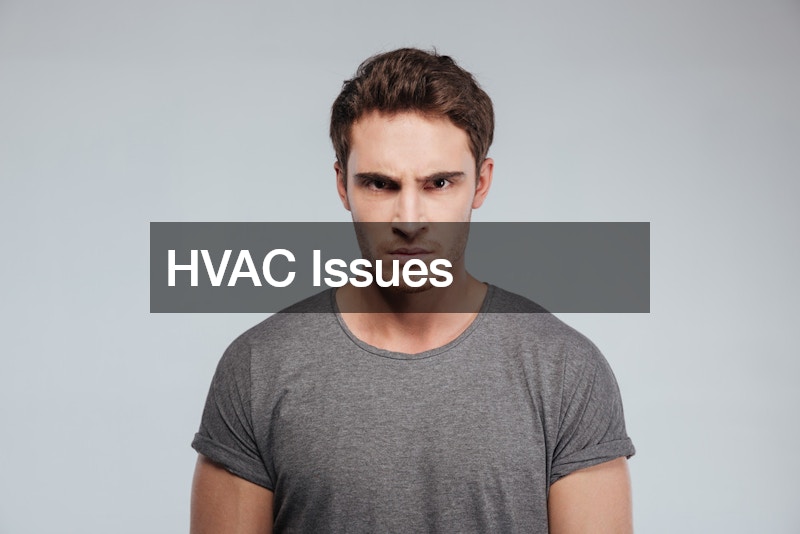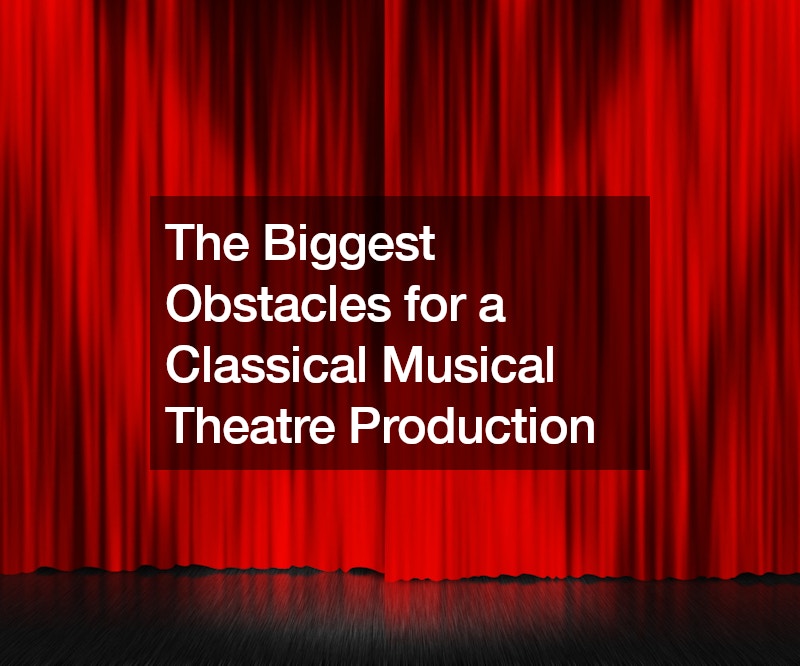Classical musical theatre continues to captivate audiences with its timeless stories, evocative scores, and elaborate productions. However, producing these grand spectacles involves overcoming numerous logistical and technical challenges that range from legal issues to structural inadequacies. This article delves into various hurdles encountered in staging classical musical theatre and the practical solutions implemented to address them. From addressing criminal activity concerns to managing injuries, and from dealing with structural issues to handling equipment access, each step of the production process demands meticulous planning and execution. Furthermore, the article explores surgeries for cast members, lighting problems, HVAC issues, parking solutions, prop storage, and set design, each offering unique insights into the multifaceted nature of musical theatre production.
1. Criminal Activity

Criminal activity can pose a significant threat to the smooth execution of classical musical theatre productions. Engaging with criminal defense law becomes essential to safeguard the interests of the cast and crew. By ensuring thorough background checks and maintaining a secure environment, production companies can mitigate potential risks.
Additionally, understanding criminal defense law helps in swiftly addressing any unforeseen legal challenges. This ensures that the focus remains on the artistic elements of classical musical theatre rather than being diverted to legal entanglements. Legal professionals with expertise in this area are invaluable assets to theatre companies. Collaboration with local law enforcement agencies further aids in creating a secure atmosphere. By fostering relationships with these authorities, production houses can quickly respond to any criminal activity, ensuring the safety and well-being of everyone involved in the classical musical theatre production.
The significance of criminal defense law extends beyond immediate crisis management. It plays a critical role in drafting comprehensive contracts and agreements that outline the responsibilities and expectations of all parties involved. This proactive approach helps in preventing misunderstandings and disputes that could lead to legal complications. By embedding legal safeguards within these documents, theatre companies can protect themselves from potential liabilities and ensure smoother operational workflows.
Moreover, having a criminal defense strategy in place allows production companies to effectively handle incidents of theft, vandalism, or any other criminal offenses that may occur on set or within the theatre premises. This readiness not only protects valuable assets and equipment but also upholds the morale and trust of the cast and crew, fostering a safe and supportive working environment. In addition, educating the cast and crew about basic legal protocols and their rights can empower them to take appropriate actions if they encounter suspicious activities or are involved in legal incidents. This knowledge serves as a preventive measure, reducing the likelihood of criminal activities and ensuring that everyone knows how to respond if such situations arise.
Investing in security measures such as surveillance systems, secure access points, and regular safety drills further complements the efforts to safeguard production. By integrating these practices with a solid understanding of criminal defense law, classical musical theatre productions can thrive in a secure environment. This holistic approach ensures that the focus remains on delivering captivating performances while minimizing the risk of disruptions due to criminal activities.
2. Injuries
Managing injuries is a critical aspect of classical musical theatre production. Cast and crew members often face the risk of physical injuries during rehearsals and performances. Establishing a partnership with a local urgent care center ensures immediate medical attention, minimizing downtime and facilitating quick recovery.
Furthermore, having access to a local urgent care center provides peace of mind to everyone involved in the production. It assures them that any injuries, no matter how minor or severe, will be promptly addressed by healthcare professionals. This readiness contributes significantly to the overall efficiency and morale of the team. Regular training and safety drills are also imperative to prevent injuries. By educating cast and crew about best practices and safety measures, the risk of injuries during the production of classical musical theatre can be significantly reduced, ensuring smooth and uninterrupted performances.
In addition to partnering with local urgent care centers, it’s beneficial for production companies to have basic first aid kits and trained personnel on-site. Equipping the theatre with first aid supplies and ensuring that some team members are trained in basic first aid and CPR can make a significant difference in the immediate management of minor injuries and potentially life-threatening situations. This preparedness can bridge the gap until professional medical help arrives, further enhancing the safety net for the cast and crew.
Moreover, developing a comprehensive injury management protocol is essential. This protocol should outline the steps to be taken in case of an injury, including immediate first aid, communication with medical professionals, and documentation of the incident. Clear guidelines ensure that everyone knows their role in an emergency, leading to a swift and coordinated response. Regular reviews and updates of these protocols can keep the team well-prepared for any situation.
Investing in ergonomic equipment and stage setups can also reduce the risk of injuries. Ensuring that props, sets, and costumes are designed with safety in mind, and that proper lifting techniques are used, can prevent common injuries such as strains and sprains. Additionally, providing appropriate footwear and attire for rehearsals and performances can help minimize slips, trips, and falls.
Finally, fostering an environment where cast and crew members feel comfortable reporting injuries or potential hazards is crucial. Encouraging open communication about safety concerns without fear of repercussions can lead to the identification and mitigation of risks before they result in injuries. A proactive approach to injury management not only protects the well-being of the team but also enhances the overall quality and success of the production.
3. Structural Issues

Structural issues can disrupt the seamless execution of a classical musical theatre production. Identifying and addressing weaknesses in the theatre’s infrastructure, such as the roof, is crucial. Engaging professional roofers to assess and repair any damages ensures that the production space is safe and sound.
Roofers play a pivotal role in maintaining the structural integrity of the theatre. Their expertise ensures that the theatre can withstand various environmental factors, providing a secure environment for performers and audiences alike. Regular inspections and timely repairs are essential components of theatre maintenance. In addition to professional assessments, immediate attention to any reported structural issues by the theatre staff helps in preventing potential hazards. Proactively addressing these concerns enhances the longevity of the venue and ensures the continuity of classical musical theatre productions without unforeseen disruptions.
Moreover, ensuring the structural soundness of the theatre contributes to the overall aesthetic and comfort of the venue, enhancing the audience’s experience. A well-maintained theatre not only ensures safety but also reflects the professionalism and dedication of the production team. This attention to detail can elevate the reputation of the theatre and attract more patrons, ensuring the success and sustainability of classical musical theatre productions.
4. Access to Equipment
Access to specialized equipment is essential for producing classical musical theatre. The need for elevated platforms and heavy lifting necessitates the rental of cranes. Utilizing crane rental services enables the efficient movement of set pieces and equipment, ensuring the timely progression of production activities.
Cranes also enable the safe handling of large and heavy props, reducing the risk of injury to the crew. By incorporating crane rental services into the production plan, theatres can maintain a high level of efficiency, ensuring that all elements of the set are in place as needed. Coordination with crane rental companies is also vital. By establishing strong communication channels, production managers can ensure that the equipment is available when needed, thus preventing any delays in the classical musical theatre production schedule.
5. Surgeries for Cast Members
Surgeries are sometimes unavoidable for cast members in classical musical theatre. Procedures such as cataract eye surgery need to be planned around the production schedule to minimize disruptions. Coordination with medical professionals ensures that necessary surgeries do not hinder the continuity of the performance.
Cataract eye surgery is a critical procedure that demands careful planning. By scheduling surgeries during off-peak periods or planned breaks in the production, theatres can accommodate medical needs without affecting the overall timeline. This foresight is crucial in maintaining the health of cast members and the integrity of the performance. Additionally, post-surgery recovery plans should be incorporated into the production’s schedule. This includes allowing sufficient time for rest and recuperation, ensuring that cast members can return to their roles fully healed and ready to perform at their best.
6. Lighting Problems
Lighting is a fundamental element of classical musical theatre, creating mood and enhancing visual storytelling. Addressing lighting problems promptly is essential for maintaining the quality of the production. Engaging a local handyman skilled in electrical work ensures quick and effective resolution of any lighting issues. The involvement of a proficient local handyman can make a significant difference in the production’s success. Their ability to swiftly diagnose and fix lighting problems ensures that performances continue seamlessly, maintaining the audience’s immersive experience. Regular maintenance and timely upgrades to the lighting system further mitigate problems. By conducting routine checks and replacements, theatres can avoid unexpected issues, ensuring that the lighting enhances the visual appeal of the classical musical theatre production.
7. HVAC Issues

Adequate heating, ventilation, and air conditioning (HVAC) are crucial for the comfort of both performers and audiences. HVAC issues can disrupt the environment, affecting performance quality. Engaging with a reliable heating service ensures that the theatre maintains optimal temperature and air quality. Heating service professionals play an essential role in creating a comfortable atmosphere in the theatre. Their expertise in maintaining and repairing HVAC systems ensures that the theatre environment remains conducive to both rehearsal and performance, regardless of external weather conditions. Regular inspections and proactive maintenance of HVAC systems are also vital. By identifying and addressing potential issues early, theatres can prevent disruptions, ensuring that every classical musical theatre performance proceeds without any climate-related discomfort or distraction.
8. Parking Solutions
Parking can be a significant concern for classical musical theatre productions, impacting both audience convenience and logistical operations. Ensuring adequate parking solutions, such as well-maintained asphalt driveways, enhances accessibility and audience satisfaction. Engaging services to maintain and repair asphalt driveways ensures that parking areas are safe and accessible. This consideration aids in the smooth influx and dispersal of audiences, contributing to a positive overall theatre-going experience. Furthermore, clear signage and efficient traffic management around the parking areas enhance operational efficiency. By providing well-marked and managed parking zones, theatres can accommodate larger audiences, ensuring the success of classical musical theatre performances.
9. Prop Storage
Effective prop storage is essential for the organization and smooth operation of classical musical theatre productions. Utilizing the services of a moving and storage company ensures the safe and organized storage of props, reducing clutter and streamlining access during performances. Collaboration with a moving and storage company provides the necessary infrastructure for prop management. Their expertise in handling and storing various items ensures that all props are readily available and in excellent condition, contributing to the efficiency of the production. Additionally, adopting systematic storage solutions within the theatre further enhances accessibility and orderliness. Clear labeling and designated storage areas minimize time spent searching for props, improving the overall workflow of the classical musical theatre production.
10. Convincing Set Design

Set design is a critical aspect of classical musical theatre, creating the visual framework that supports the narrative. Incorporating elements such as a fireplace can enhance the authenticity and appeal of the set, drawing the audience into the story. A well-designed fireplace not only adds to the aesthetic value of the set but also contributes to the realism of the production. Its presence can evoke specific atmospheres and emotions, enriching the audience’s immersive experience in the theatrical world. Collaborating with designers and artisans ensures the creation of convincing and functional set pieces. By focusing on details and quality craftsmanship, theatres can produce visually compelling sets that elevate the overall impact of the classical musical theatre production.
Conclusion
Staging a classical musical theatre production involves navigating a myriad of challenges, ranging from legal issues to technical and logistical hurdles. Addressing these challenges head-on, whether through criminal defense law, local urgent care centers, professional roofers, crane rental services, or skilled lighting and HVAC services, is essential for a successful production. Moreover, ensuring proper parking solutions, efficient prop storage, and convincing set design further enhance the overall quality and experience of the performance. By meticulously planning and implementing these solutions, production teams can overcome obstacles and bring the timeless magic of classical musical theatre to life, offering audiences unforgettable theatrical experiences.

